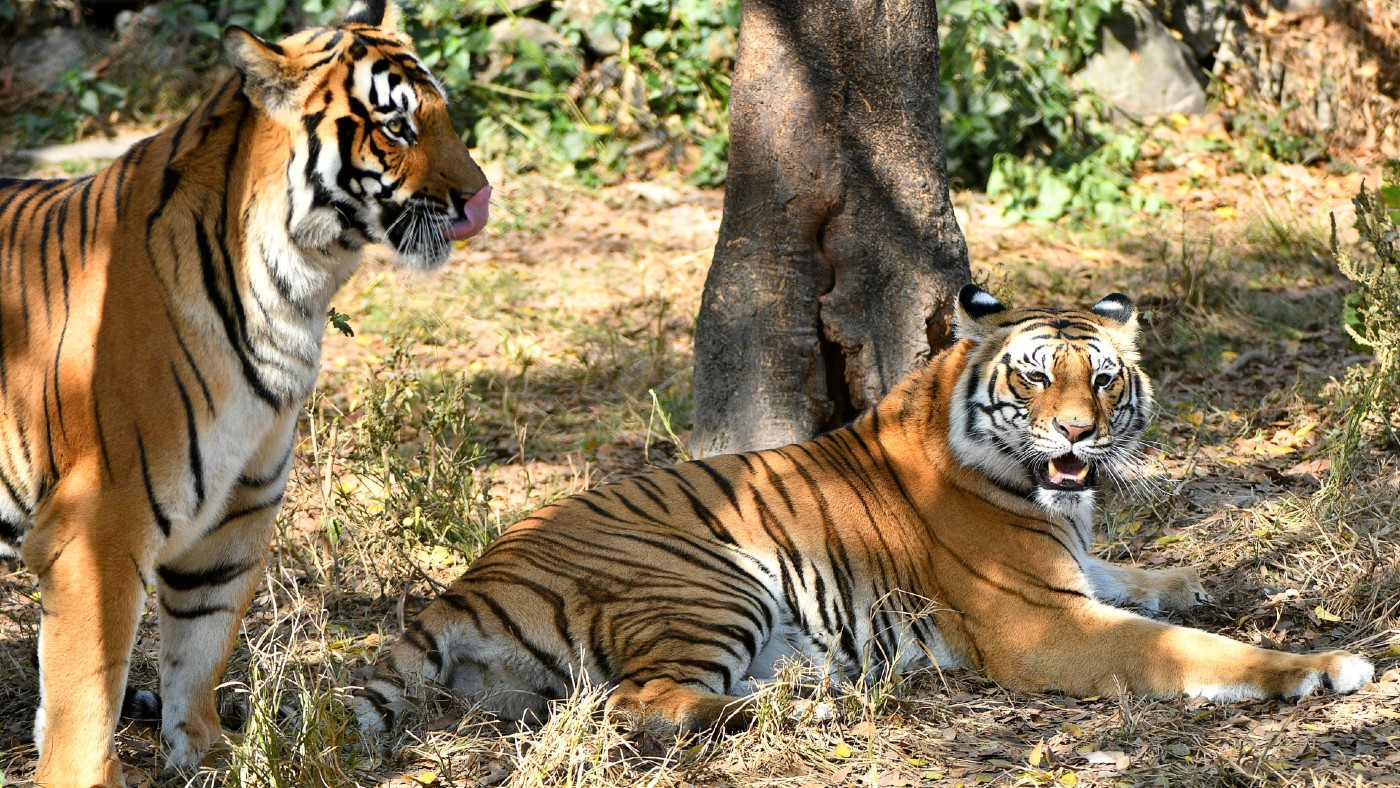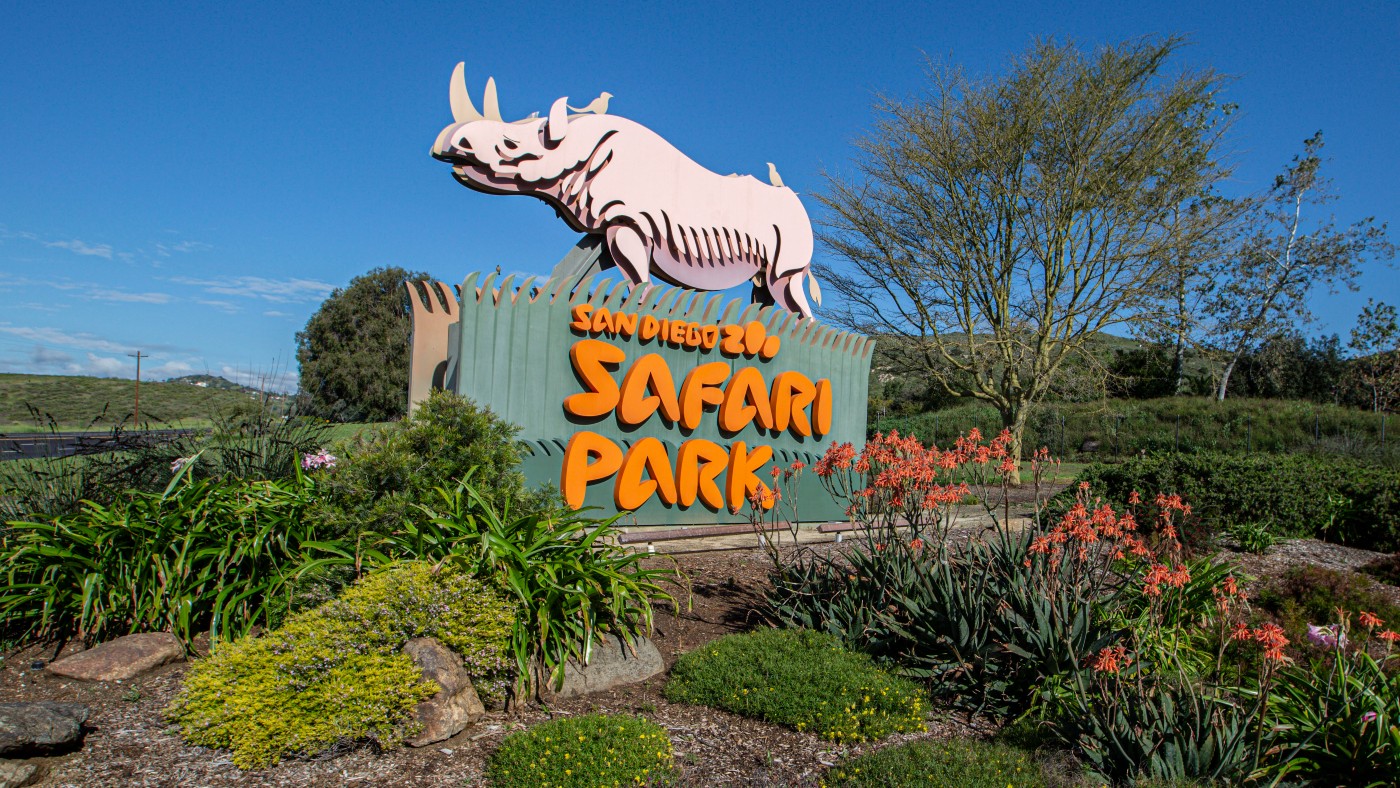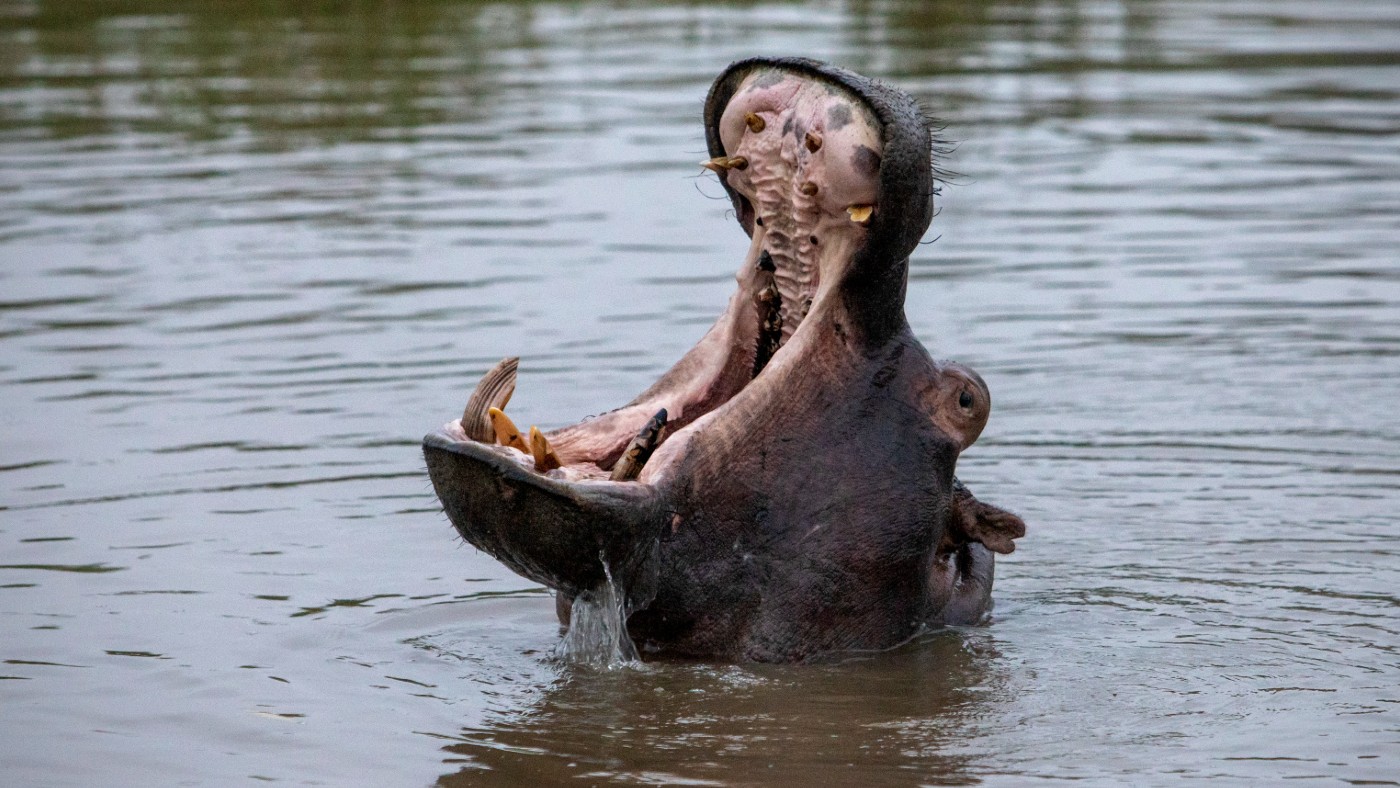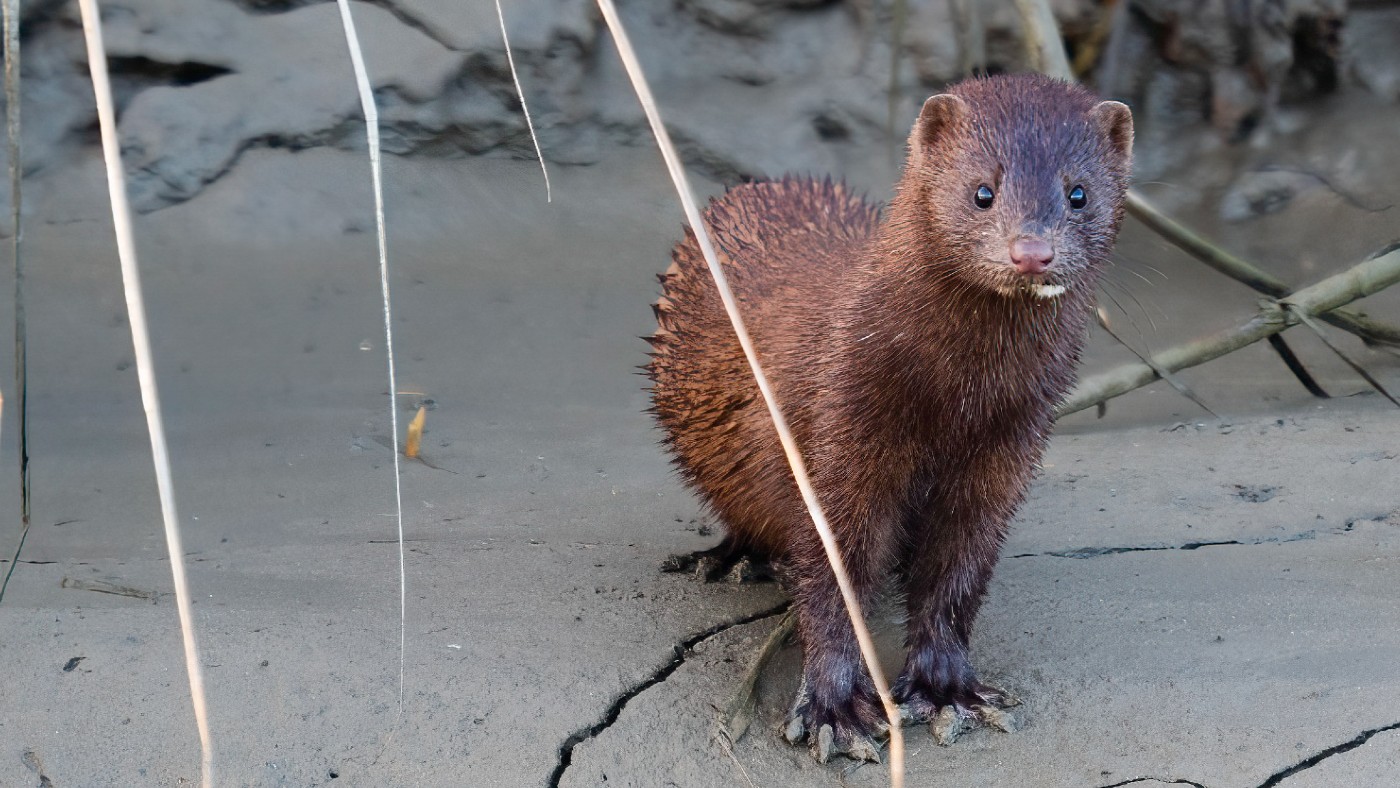Inside the Covid vaccine programme for animals
The virus has been detected in species ranging from hippos to hyenas

A free daily email with the biggest news stories of the day – and the best features from TheWeek.com
You are now subscribed
Your newsletter sign-up was successful
Thousands of animals in zoos worldwide are being inoculated against Covid-19 as veterinary scientists explore which species are at risk from the coronavirus.
At California’s San Diego Zoo and Safari Park, around 260 creatures – including tigers, cheetahs, mountain lions and otters – have been jabbed with an experimental vaccine created by global animal health company Zoetis. The pharmaceutical giant is donating a total of around 26,000 doses of the vaccine, which can be administered from afar via darts, to zoos and sanctuaries in 13 countries, The Scientist magazine reported.
Russia has also began vaccinating animals there using a homegrown vaccine. The Russian state-owned RIA news agency reported in May that the “vaccination of domestic animals against coronavirus with the domestic drug Karnivak-Kov” was being rolled out initially in the Moscow, Ryazan and Bryansk regions.
The Week
Escape your echo chamber. Get the facts behind the news, plus analysis from multiple perspectives.

Sign up for The Week's Free Newsletters
From our morning news briefing to a weekly Good News Newsletter, get the best of The Week delivered directly to your inbox.
From our morning news briefing to a weekly Good News Newsletter, get the best of The Week delivered directly to your inbox.
US-based company Zoetis started working on its vaccine in February 2020, and began delivering doses a year later after eight gorillas at the San Diego safari park tested positive for Covid following contact with a human handler. The infections marked the first known human-ape transmission.

‘Unprecedented’ jab
While “vaccines for humans require expensive development programmes and large scale trials”, said The Scientist, “animal vaccines commonly require a lower level of scrutiny, and often have a different make-up”. And “there is precedent for jabs that can be used on multiple species, so some veterinary pharmaceutical companies have sought to develop a Covid-19 shot that can be used to vaccinate many different types of animal”.
Gorillas, bonobos and orangutans were among the first creatures to receive the Zoetis vaccine, which has now been used to inoculate dozens of different species in a handful of zoos across the US.
“It’s unprecedented that we have one vaccine with one adjuvant that has been used in over 100 species without significant issues,” said microbiologist Mahesh Kumar, a senior vice president of Zoetis.
A free daily email with the biggest news stories of the day – and the best features from TheWeek.com
And the size of the vaccine dose does not need to be adjusted depending on the size or weight of the recipient animal, with “the exact same quantity” used regardless of whether the creature is “a 500lb gorilla and a 5lb mink”, Kumar told the magazine.
Similar to Novavax
The experimental vaccine works in a similar way to the Novavax jab, which was greenlit for adults aged 18 and over by the European Medicines Agency this week.
Instead of using a snippet of genetic material called messenger RNA (mRNA) like the Pfizer and Moderna vaccines, or a viral vector like the Johnson & Johnson version, or a live virus, the Zoetis jab “uses synthetic spike proteins to trigger the same antibodies the live virus would”, said National Geographic.
Covid deaths in animal
Although Covid has been detected in various species, from white-tailed deer and domestic cats to hippos and hyenas, the virus has claimed few animal lives.

In June, two lions died after testing positive at the Arignar Anna Zoological Park in the southern Indian city of Chennai. Forbes reported that ten other lions were also infected, “suggesting that big cats in zoological facilities may be more vulnerable to the coronavirus than previously thought”.
But while a 17-year old tigress at a Swedish zoo “had to be euthanised after contracting” Covid, there were “no other confirmed instances” of a big cat dying from the disease, the magazine said.
Covid cases among animals to date have mainly been confined to carnivorans – meat-eating animals such as wolves, hyenas, cats and dogs. However, experts say that until more data is available, the jury is still out on whether carnivorans are more susceptible.
‘First in line’ for jabs
Zoos “will make their own judgements” about which species to priorities for Covid vaccines, according to The Scientist. But “big cats and gorillas” are likely to be “first in line”.
Arguments have also been made for vaccinating endangered species against Covid-19. And while there has been “little evidence of pet-to-human transmission”, added the magazine, concerns have also raised about urban monkeys that “sometimes interact with people at very close quarters, including in many large cities in Asia and South America”.
Mutations of the virus “could come back into the human population”, said Kevin Tyler, a microbiologist at the University of East Anglia.
The Guardian reported in February that EU disease and food safety experts feared that mink farms could also pose a “Covid risk to humans and wildlife”. As of January, the virus had been found at 400 mink farms in at least eight countries in Europe, including 290 in Denmark.

EU health bosses called for regular testing of staff and animals at the fur farms – a call echoed by the World Health Organization.
Vaccine maker Zoetis is hoping to get its experimental vaccine approved for use in mink, amid continuing concerns that mink-related variants of the virus might prolong the pandemic.
In October, local authorities in Finland were granted permission to vaccinate the country’s entire mink population against Covid-19, using a domestically produced jab. Finland’s Mink Breeders’ Association worked with researchers at the University of Helsinki to develop an experimental vaccine to be used exclusively at the country’s 1,000 mink farms, euronews reported.
Kate Samuelson is The Week's former newsletter editor. She was also a regular guest on award-winning podcast The Week Unwrapped. Kate's career as a journalist began on the MailOnline graduate training scheme, which involved stints as a reporter at the South West News Service's office in Cambridge and the Liverpool Echo. She moved from MailOnline to Time magazine's satellite office in London, where she covered current affairs and culture for both the print mag and website. Before joining The Week, Kate worked at ActionAid UK, where she led the planning and delivery of all content gathering trips, from Bangladesh to Brazil. She is passionate about women's rights and using her skills as a journalist to highlight underrepresented communities. Alongside her staff roles, Kate has written for various magazines and newspapers including Stylist, Metro.co.uk, The Guardian and the i news site. She is also the founder and editor of Cheapskate London, an award-winning weekly newsletter that curates the best free events with the aim of making the capital more accessible.
-
 How the FCC’s ‘equal time’ rule works
How the FCC’s ‘equal time’ rule worksIn the Spotlight The law is at the heart of the Colbert-CBS conflict
-
 What is the endgame in the DHS shutdown?
What is the endgame in the DHS shutdown?Today’s Big Question Democrats want to rein in ICE’s immigration crackdown
-
 ‘Poor time management isn’t just an inconvenience’
‘Poor time management isn’t just an inconvenience’Instant Opinion Opinion, comment and editorials of the day
-
 Epstein files topple law CEO, roil UK government
Epstein files topple law CEO, roil UK governmentSpeed Read Peter Mandelson, Britain’s former ambassador to the US, is caught up in the scandal
-
 Iran and US prepare to meet after skirmishes
Iran and US prepare to meet after skirmishesSpeed Read The incident comes amid heightened tensions in the Middle East
-
 Israel retrieves final hostage’s body from Gaza
Israel retrieves final hostage’s body from GazaSpeed Read The 24-year-old police officer was killed during the initial Hamas attack
-
 China’s Xi targets top general in growing purge
China’s Xi targets top general in growing purgeSpeed Read Zhang Youxia is being investigated over ‘grave violations’ of the law
-
 Panama and Canada are negotiating over a crucial copper mine
Panama and Canada are negotiating over a crucial copper mineIn the Spotlight Panama is set to make a final decision on the mine this summer
-
 Why Greenland’s natural resources are nearly impossible to mine
Why Greenland’s natural resources are nearly impossible to mineThe Explainer The country’s natural landscape makes the task extremely difficult
-
 Iran cuts internet as protests escalate
Iran cuts internet as protests escalateSpeed Reada Government buildings across the country have been set on fire
-
 US nabs ‘shadow’ tanker claimed by Russia
US nabs ‘shadow’ tanker claimed by RussiaSpeed Read The ship was one of two vessels seized by the US military